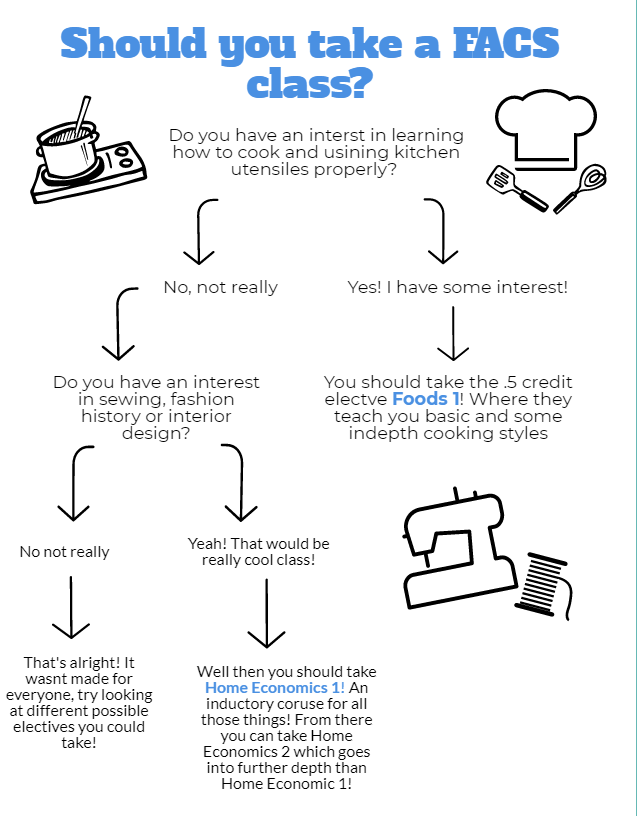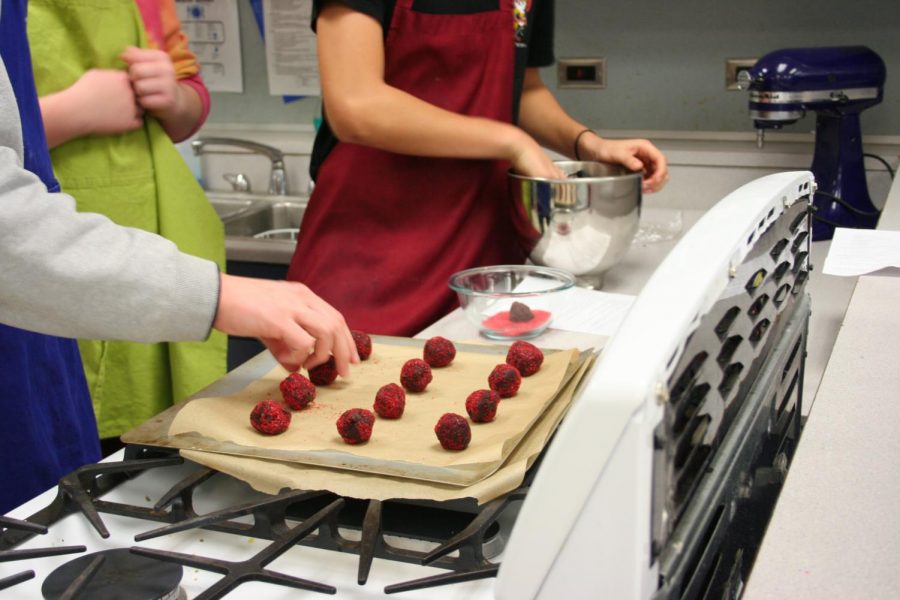Things to remember: Home Economic and Foods classes help students prepare for life beyond high school
When Home Economics was first introduced into the school system, the class was offered to students to “prepare student[s] for effective discharge of duties within the home and give scientific preparation for efficient administration of household affairs” according to sites.middlebury.edu, and its grown to be so much more. It gives students a way to learn life skills in not only food but also with children, taxes, and a variety of other proficiencies.
In the Family and Consumer Science classes, learn skills that they willlook back on in 10-15 years, these classes help students prepare for something no regular classroom does, the test of life, according to Racheal Fischer, FACS teacher.
“The classes teach you life skills. You learn about budgeting, how to prepare food, live a healthy lifestyle and how to live on your own. Student should take it so they can learn valuable life skills that they will need as adults. You’d be surprised how many kids don’t know how to turn on a stove and boil water. I love teaching kids something that they’ll look back on in 10-15 years and remember.”
Before taking this class Morgan Beaudoin, Junior who takes Creative Cooking and Home Economics 1 had a hard time with simple domestic tasks, but now after learning teqhniues and life long lessons, Beaudoin knows and trusts herself with hot stoves and other dangerous cooking supplies.
“Before [the classes] I was a really bad cook. I was one of those kids that would first put the water in the microwavable mac and cheeses and burn the house on fire,” Beaudoin said. “Now I’m actually able to cook dishes and I feel like it’ll really help for when I go to college and move out. I’ll be able to provide and cook for myself and not have to order out every night.”
Learning to support yourself is a key point in what the classes is about, Beaudoin says, since you learn things from basic recipe making to how to babysit a kid. For Brandon Goodman, sophomore who takes Foods 1, a spark in interest about food is now being put to use in these cooking classes.
“I decided to take the class because I always had a slight interest in cooking since middle school and that was pretty fun but we didn’t do much of it. When I saw foods 1 I was grateful because there was finally a class I could take dedicated to cooking,” Goodman said. “I was drawn towards foods one because of the opportunities it gave me. It will allow me to go onto creative cooking, which is much more cooking.”

Curious about FACS but not sure what you would do? Don’t worry; there’s a flow chart to help you decide!
According to sites.middlebury.edu, these home economic classes were ways to “codified gender roles in the field of home economics” however, that was more the 1950’s mentality Fischer said. Boys and girls alike find interest in the courses as it helps them prepare for their life ahead and shouldn’t be confined to a gender, according to Beaudoin.
“The class I’m in is actually 50/50 boys and girls. Actually the boys were the ones who were most interested in this course. They were like “I don’t know how to take care of a kid! What do I do??” Beaudoin said. “It was really interesting because girls kind of knew what was going on and they really enjoyed it. The boys were actually able to learn new things.”
Learning important life skills like taking care of children and cooking is things that you can’t really learn from a textbook, having these classes allows students an outlet to learn these skills before they live on their own, according to Beaudoin. Learning these skills have been very beneficial and will help students stay healthy, Goodman said.
“I think that the major benefits in the class was learning the basic purpose of certain ingredients like how eggs can be used to bind things together or add flavor and texture allowing me to create my own dishes,” Goodman said. “ I think knowing this will help me create flavorful and healthy dishes in the future. Which with how the current health status in America is, it certainly helps.”

This is Marissa's first year on staff and second year in the journalism program. As a sophomore, Marissa likes to take long walks to the fridge and spends...


